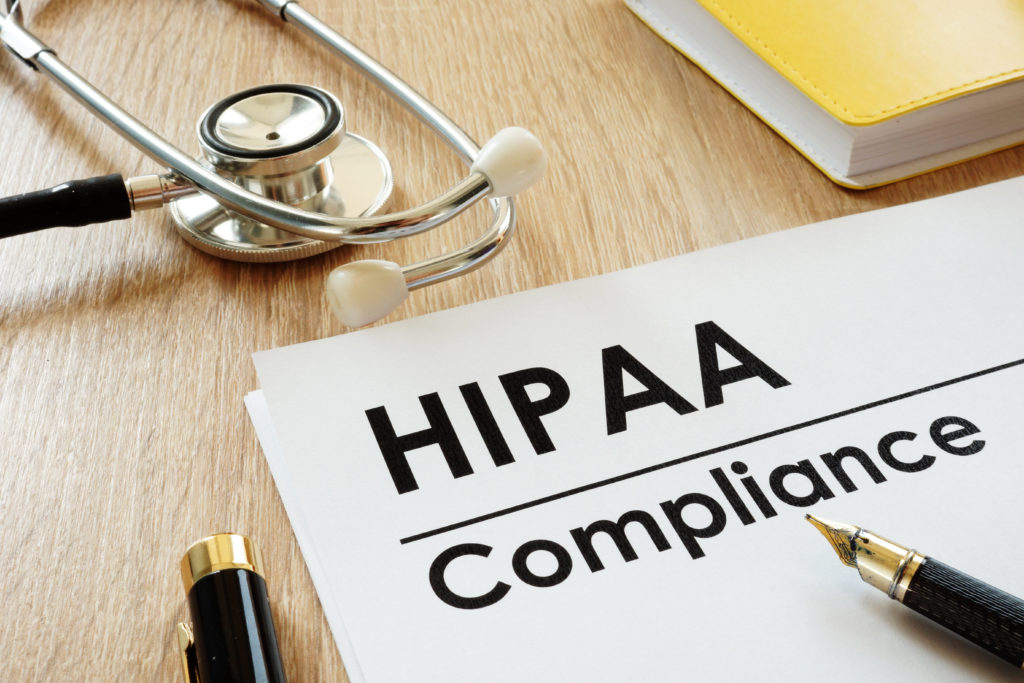HIPAA compliance is an absolute requirement for every healthcare professional. This federal legislation helps keep patients’ data secure and safe and gives individuals more access to their personal information. As technology evolves at a rapid pace, it is important to ensure that any new system that is adopted adheres to HIPAA regulations.

HIPAA compliance is complicated, especially for organizations still trying to figure out what HIPAA signifies and how it impacts them. Health care institutions as well as those working in the health insurance industry have to be extremely careful to comply with the requirements of HIPAA even if they aren’t sure about it. To ensure compliance, it is important to read through the rules and make sure that the procedures are implemented. While it can be an overwhelming task, ensuring that you follow the law is vital. It will ensure more efficient service and better protection of data privacy with potential penalties being avoided. Comprehending the HIPAA regulations and taking proper steps can help companies ensure that they adhere to the prescribed procedures.
Although HIPAA’s regulations may be stringent, the focus on proper privacy and security measures aims to protect one of our most precious things: information. It is essential to have better protections to prevent the illegal disclosure or misuse of personal information of patients as healthcare providers have increasingly moved to digital media such as Electronic Medical Records. Although guidelines have been established however, it is essential to ensure that individuals comply with these rules. HIPAA is monitoring the situation to ensure patients to be secure and secure.
HIPAA is a vital security measure for all those who work in the medical profession and patients whose information is stored. Both covered entities (CEs) as well as business associates, are able to decide whether an addressable implementation standard should be used. The choice is affected by many elements such as the risk analysis mitigation strategy, the present security measures, and the cost of implementation. CEs and BAS may consider alternative measures or opt to not implement the measure completely if it is feasible given their circumstances. HIPAA urges them to take well-informed decisions on data protection and safeguarding, while establishing a balance between technical safeguards and user control over sensitive information.
Numerous organizations are reaping the benefits of HIPAA compliance. Following the rules of the Health Insurance Portability and Accountability Act, (HIPAA), can allow organizations to safeguard their clients’, patients and their health information. It will guarantee that it is kept private and secure. Compliance also ensures that individuals’ medical data is used exclusively for their benefit and that of their health care providers. HIPAA compliance provides individuals with the ability to make informed choices about the way their personal medical information is handled and used. Additionally, it allows them to be confident that their data will not be available or modified by any other entity without their permission. HIPAA compliance helps businesses avoid reputational risk through assisting them to avoid legal or financial consequences resulting from mistakes in handling patient data. HIPAA compliance is a way to ensure that patients enjoy a positive experience as well as better protection of their sensitive medical records.
There are a few items to think about as you consider HIPAA compliance. It is crucial to comprehend the law in order to are able to comply with it. It is also recommended to speak with an expert who can help you understand it and to implement the systems and processes. It can be challenging to achieve full compliance, but it is vital for protecting the rights of your patients and keeping their medical information confidential.
For more information, click hipaa requirements include